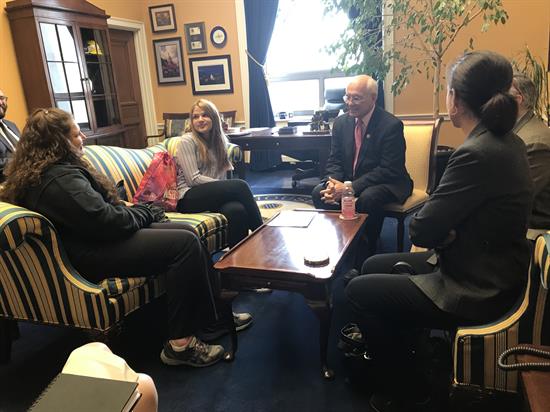- Home
- About
-
Constituent Services
- Academy Nominations
- Community Project Funding
- Congressional Art Competition
- Congressional App Challenge
- Congressional Commendation
- Event Invitation
- Grants
- Help with a Federal Agency
- Internships
- IRA Clean Energy Consumer Benefits
- Know Your Rights: Immigration
- Request a Meeting
- Request Surplus Books
- Presidential Greeting
- Visit Washington D.C.
- Issues & Legislation
- News
- 20th District
- Contact

Press Releases
Tonko, Trone Introduce Major Bipartisan Bill to Address Addiction EpidemicAddiction & Recovery Caucus leaders in House & Senate continue push to increase access to treatment resources
Washington,
July 2, 2021
Tags:
Addiction & Recovery
WASHINGTON—Representatives Paul D. Tonko (D-NY) announced today that he has introduced his bipartisan, bicameral Comprehensive Addiction and Recovery Act (CARA) 3.0 Act with bill sponsor David Trone (D-MD) aimed at mitigating the effects of COVID-19 on the addiction epidemic and increasing funding for prevention, education, research, treatment and recovery. The bill builds on previous iterations of CARA and adds Rep. Tonko’s Mainstreaming Addiction Treatment (MAT) Act to eliminate the outdated bureaucratic requirement known as the “x-waiver” currently blocking millions of highly-trained health professionals from prescribing proven, lifesaving addiction treatment, to their patients. “With the global COVID pandemic continuing to drive unprecedented mental health challenges and a scary spike in opioid deaths, we need to take action now to expand access to safe, proven and affordable treatments and other lifesaving services,” Congressman Tonko said. “I applaud the inclusion of the Mainstreaming Addiction Treatment Act in the new Comprehensive Access and Recovery Act to ensure this bold legislation finally ends the outdated bureaucratic ‘x-waiver’ and opens the door for millions more Americans to access buprenorphine, a life-changing addiction medication that many medical professionals can already prescribe for other purposes. Now is the time to act to ensure that Americans in need can access mental health services and addiction, treatment and recovery services. I am proud to join with my colleagues to advance this comprehensive package to save lives and better address the needs of so many of our neighbors, friends and loved ones throughout the nation.” America’s opioid epidemic has spike during the COVID crisis. A CDC survey recently found that 13% of American adults started or increased their substance use to cope with emotions related to the COVID pandemic. And more than 87,000 Americans died from drug overdoses in the 12 months ending September 2020, an increase of nearly 30% over the same period a year earlier. “It is no secret that the coronavirus pandemic exacerbated substance use disorders and revealed the true extent of our nation's public health crisis,” said Rep. David Trone. “We need a multi-pronged approach where health care professionals are equipped to give compassionate and effective treatment and those with substance use disorder are given the resources they need for recovery: housing, accessible health care, job opportunities, and most of all a second chance. That is why I am calling on my colleagues from both sides of the aisle to come together and pass CARA 3.0 so that real help can be delivered to those individuals and communities impacted by addiction.” Tonko and Trone were joined in announcing the bill’s introduction by fellow Addiction, Treatment, and Recovery Caucus co-chairs Reps. Tim Ryan (D-OH), David McKinley (R-WV) and Dave Joyce (R-OH), along with Reps. Annie Kuster (D-NH), Brian Fitzpatrick (R-PA), and Jaime Herrera Beutler (R-WA). The original CARA Act has six evidence-based pillars: prevention, treatment, recovery, law enforcement, criminal justice reform, and overdose reversal. CARA 3.0 would strengthen these pillars and provide a solid foundation for tackling the addiction epidemic going forward. CARA 3.0 includes a host of new policy changes, including mandating physician education on addiction, treatment, and pain management. It would establish a National Commission for Excellence in Post-Overdose Response to improve drug overdose care, create a program to study mobile methadone clinics in rural areas, and commission a review of recovery housing. It would also:
A summary of the bill can be found here. A Section by Section of the bill can be found here. Bill text can be found here.
|
